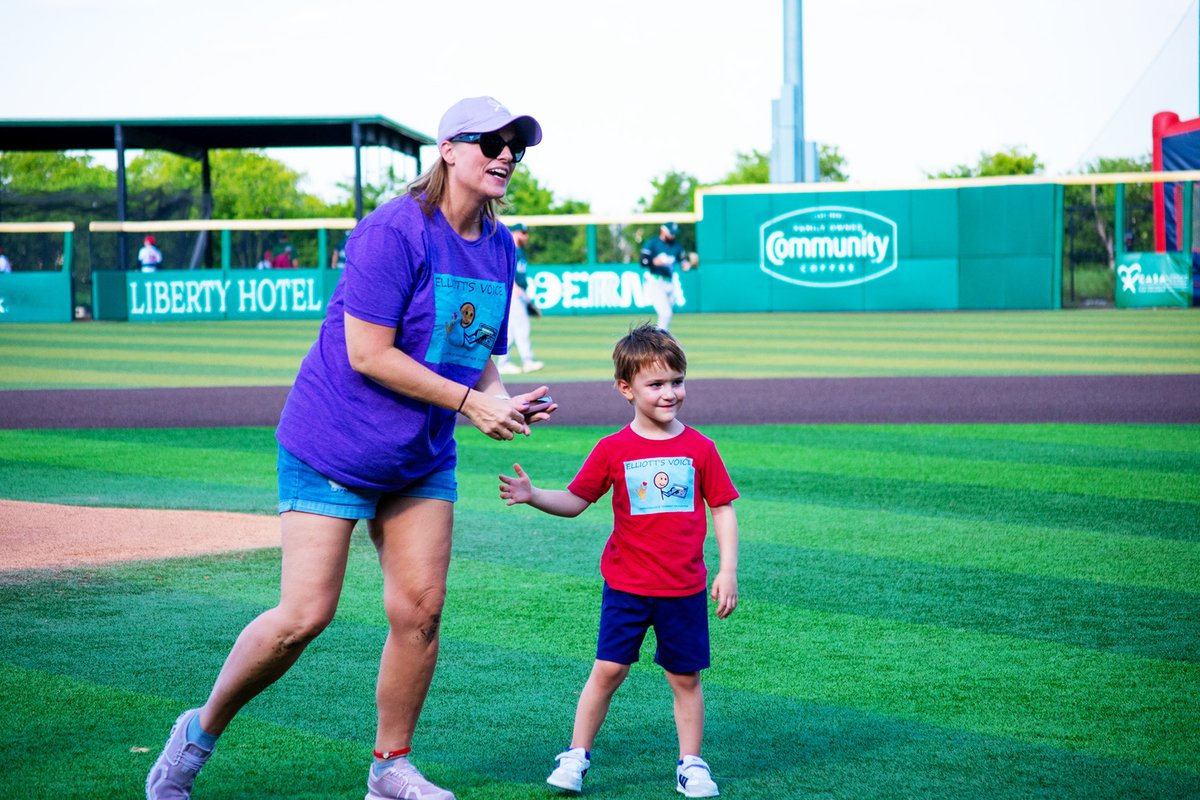In a world filled with chatter and exuberance, the inability to communicate can feel like an insurmountable wall. Kendra Frank knows this all too well. As the founder of Elliott’s Voice, a nonprofit based in Fort Worth, she is committed to ensuring that no one has to navigate the world without a voice — literal or metaphorical.
Elliott’s Voice sprang from Frank’s personal experience as a mother. Her youngest son, Elliott, born amid the COVID-19 pandemic, was diagnosed with childhood apraxia of speech, a condition that hampers his ability to coordinate the muscles required for speech even though he understands language perfectly.
“We noticed something was different, but everybody kept saying, ‘Wait,’” Franks says about Elliot’s development. “He could say 10 words, and then he lost ’em all. And so they kept telling me, ‘Wait and see,’ and I was like, ‘No, there’s something wrong.’ So I kept pushing and pushing, and finally we got a diagnosis.”
Elliot was eventually diagnosed with autism level two on top of his apraxia of speech, which answered some questions for Frank, but also opened a whole realm of new ones. She quickly took matters into her own hands, diving into the world of Augmentative and Alternative Communication (AAC), researching and advocating for alternatives that would allow her son to express his needs and desires.
At first, several tech solutions proved to be beneficial, but after a hot day-trip to the Fort Worth Zoo, Frank says she had to think quickly.
“His iPad just shut down,” she says. “And I was like, ‘What am I going to do?’ He can’t talk. And we’re just trying to figure it out.”
Luckily, Frank had a low-tech laminated board with a few common symbols on it to help with the situation.
“Then I started thinking, ‘Why can’t every public place have a low-tech board kind of like this? ‘” she asked.
From parks and zoos to emergency vehicles, Frank envisioned a community where communication boards — simple laminated sheets with symbols and words — would be available to all, ready to bridge the gap for those who struggle to articulate their thoughts.
The Fort Worth Zoo heard Frank out and now has a communication board as well as several other Fort Worth institutions like the Fort Worth Museum of Science and History, the Botanic Garden, the Carter, and the Kimball. And, according to Frank, the Fort Worth Library will soon have this resource as well. Shoot — even the Dallas Arboretum has one.
“Now a child can simply point to express their needs, whether they’re at a baseball game or a library. It’s about making DFW more inclusive,” she explains.
The nonprofit has also ventured into partnerships with local first responders, placing emergency communication boards in 18 cities, allowing children and adults alike to convey critical information during times of crisis. As Frank emphasizes, “A picture is universal — regardless of language, it communicates.”
Yet spreading the word about this initiative hasn’t been without its challenges. Many municipalities initially turned Frank down, thinking she was trying to sell them something. However, she persisted, eventually winning a few city councils over.
The fact of the matter is, the communication boards — yes, there are several iterations of them made for specific events and places — are entirely free. Frank says she creates the designs and laminates each board herself. And if you happen to see her at a local event, chances are she’ll be more than happy to give you one. There’s even a scan code on each board that will pop up on your phone for you to use whenever needed. Frank has also created a bilingual board with easy-to-understand symbols written in Spanish for both first responders and civic areas.
Since launching her initiative two years ago, Frank has become an active member of the Parent-Teacher Organization (PTO) at Burton Hill Elementary. She has also secured a position on the Special Ed Parent-Teacher Association for Fort Worth ISD. Additionally, she was sworn in to the Fort Worth Mayor’s Committee on Persons with Disabilities. This summer, the City of Fort Worth proclaimed May 14 as Childhood Apraxia of Speech Day, an endeavor that was brought to the city council’s attention with the aid of Frank’s efforts.
“It’s everything to me,” she admits. “When my son goes out in the world, I don’t want him to feel different or invisible. With these communication aids, he can stand shoulder to shoulder with his peers.”
